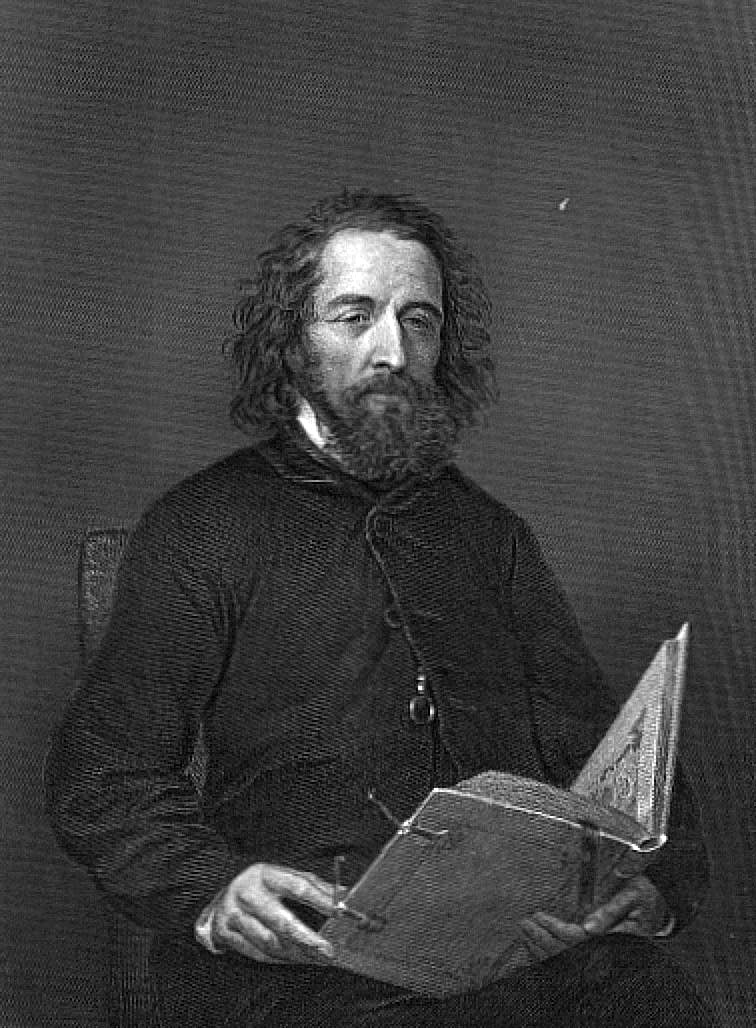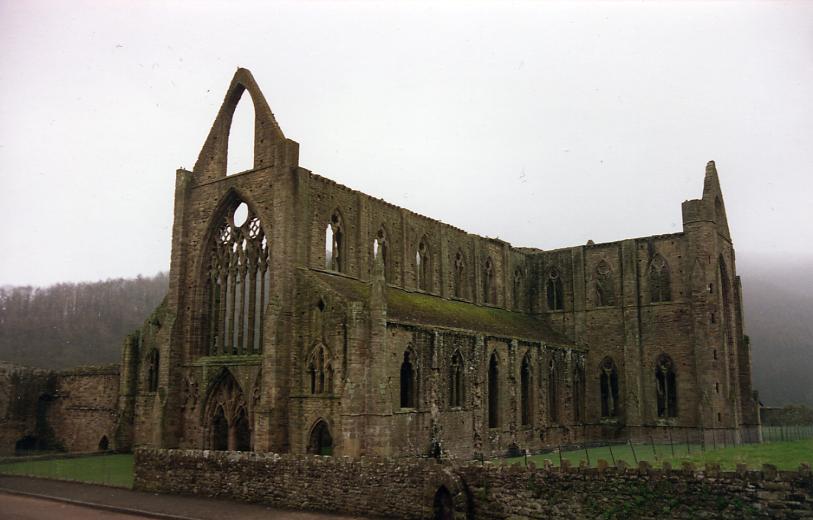Tears, Idle Tears on:
[Wikipedia]
[Google]
[Amazon]
 "Tears, Idle Tears" is a
"Tears, Idle Tears" is a 
 "Tears, Idle Tears" is a
"Tears, Idle Tears" is a lyric poem
Modern lyric poetry is a formal type of poetry which expresses personal emotions or feelings, typically spoken in the first person.
The term for both modern lyric poetry and modern song lyrics derives from a form of Ancient Greek literature, th ...
written in 1847 by Alfred, Lord Tennyson
Alfred Tennyson, 1st Baron Tennyson (; 6 August 1809 – 6 October 1892) was an English poet. He was the Poet Laureate during much of Queen Victoria's reign. In 1829, Tennyson was awarded the Chancellor's Gold Medal at Cambridge for one of ...
(1809–1892), the Victorian-era English poet. Published as one of the "songs" in his '' The Princess'' (1847), it is regarded for the quality of its lyrics. A Tennyson anthology describes the poem as "one of the most Virgil
Publius Vergilius Maro (; 15 October 70 BC21 September 19 BC), usually called Virgil or Vergil ( ) in English, was an ancient Rome, ancient Roman poet of the Augustan literature (ancient Rome), Augustan period. He composed three of the most fa ...
ian of Tennyson's poems and perhaps his most famous lyric".Hill (1971), p. 114. Readers often overlook the poem's blank verse
Blank verse is poetry written with regular metre (poetry), metrical but rhyme, unrhymed lines, usually in iambic pentameter. It has been described as "probably the most common and influential form that English poetry has taken since the 16th cen ...
Hough, Graham (1951), p. 187. "'Tears, Idle Tears'." In Killham (1960), pp. 186–191.—the poem does not rhyme.

Analysis
Tennyson was inspired to write "Tears, Idle Tears" upon a visit to Tintern Abbey inMonmouthshire
Monmouthshire ( ; ) is a Principal areas of Wales, county in the South East Wales, south east of Wales. It borders Powys to the north; the English counties of Herefordshire and Gloucestershire to the north and east; the Severn Estuary to the s ...
, an abbey that was abandoned in 1536. He said the convent was "full for me of its bygone memories", and that the poem was about "the passion of the past, the abiding in the transient." William Wordsworth
William Wordsworth (7 April 177023 April 1850) was an English Romantic poetry, Romantic poet who, with Samuel Taylor Coleridge, helped to launch the Romanticism, Romantic Age in English literature with their joint publication ''Lyrical Balla ...
also wrote a poem inspired by this location in 1798, " Tintern Abbey", which develops a similar theme.
While Tintern Abbey may have prompted the poem, it seems unlikely that its powerful emotion derives only from a generalised feeling for the past. The final stanza in particular strongly suggests Tennyson's unhappy attachment to the lovely Rosa Baring, whose wealthy family lived in Harrington Hall, a short distance from Tennyson's Somersby. Rosa's family evidently disapproved of Rosa's continued relationship with the son of Somersby's alcoholic clergyman, and she ultimately severed the connection. The "kisses . . .by hopeless fancy feign'd/on lips that are for others" and the ''cri de coeur'' "Deep as first love, and wild with all regret" seem to have little to do with Tintern Abbey, and much to do with a personal disappointment in love.
Form
"Tears, Idle Tears" is noted for its lyric richness, and for its tones of paradox and ambiguity—especially as Tennyson did not often bring his doubts into the grammar and symbolism of his works. The ambiguity occurs in the contrasting descriptions of the tears: they are "idle", yet come from deep within the narrator; the "happy autumn-fields" inspire sadness. Literary criticCleanth Brooks
Cleanth Brooks ( ; October 16, 1906 – May 10, 1994) was an American literary critic and professor. He is best known for his contributions to New Criticism in the mid-20th century and for revolutionizing the teaching of poetry in American higher ...
writes, "When the poet is able, as in 'Tears, Idle Tears', to analyze his experience, and in the full light of the disparity and even apparent contradiction of the various elements, bring them into a new unity, he secures not only richness and depth but dramatic power as well."
Critic Graham Hough in a 1953 essay asks why the poem is unrhymed, and suggests that something must be "very skillfully put in hyme'splace" if many readers do not notice its absence. He concludes that "Tears, Idle Tears" does not rhyme "because it is not about a specific situation, or an emotion with clear boundaries; it is about the great reservoir of undifferentiated regret and sorrow, which you can brush away...but which nevertheless continues to exist".
Readers tend not to notice the lack of rhyme because of the richness and variety of the vowel
A vowel is a speech sound pronounced without any stricture in the vocal tract, forming the nucleus of a syllable. Vowels are one of the two principal classes of speech sounds, the other being the consonant. Vowels vary in quality, in loudness a ...
sounds Tennyson employs into the poem. ( T. S. Eliot considered Tennyson an unequalled master in handling vowel sounds; see, for example, Tennyson's " Ulysses".) Each line's end-sound—except for the second-last line's "regret"—is an open vowel
An open vowel is a vowel sound in which the tongue is positioned approximately as far as possible from the roof of the mouth. Open vowels are sometimes also called low vowels (in U.S. terminology ) in reference to the low position of the tongue ...
or a consonant
In articulatory phonetics, a consonant is a speech sound that is articulated with complete or partial closure of the vocal tract, except for the h sound, which is pronounced without any stricture in the vocal tract. Examples are and pronou ...
or consonant group that can be drawn out in reading. Each line "trails away, suggesting a passage into some infinite beyond: just as each image is clear and precise, yet is only any instance" of something more universal.
Set to music
The poem, one of the "songs" of ''The Princess'', has been set to music a number of times.Edward Lear
Edward Lear (12 May 1812 – 29 January 1888) was an English artist, illustrator, musician, author and poet, who is known mostly for his literary nonsense in poetry and prose and especially his limerick (poetry), limericks, a form he popularised. ...
put the lyric to music in the 19th century, and Ralph Vaughan Williams
Ralph Vaughan Williams ( ; 12 October 1872– 26 August 1958) was an English composer. His works include operas, ballets, chamber music, secular and religious vocal pieces and orchestral compositions including nine symphonies, written over ...
' pianistic setting of 1903 was described by ''The Times
''The Times'' is a British Newspaper#Daily, daily Newspaper#National, national newspaper based in London. It began in 1785 under the title ''The Daily Universal Register'', adopting its modern name on 1 January 1788. ''The Times'' and its si ...
'' as "one of the most beautiful settings in existence of Tennyson's splendid lyric".Kennedy, Michael (1992). ''The Works of Ralph Vaughan Williams'', Oxford University Press, 51. .
Notes
References
* Hill, Robert W. Jr., ed. (1971). ''Tennyson's poetry; authoritative texts,juvenilia
Juvenilia are literary, musical or artistic works produced by authors during their youth. Written juvenilia, if published at all, usually appear as retrospective publications, some time after the author has become well known for later works. Bac ...
and early responses, criticism''. New York: W. W. Norton & Company. .
*
External links
* {{Alfred Tennyson Poetry by Alfred, Lord Tennyson 1847 poems